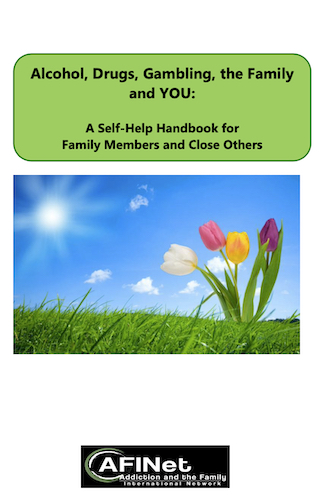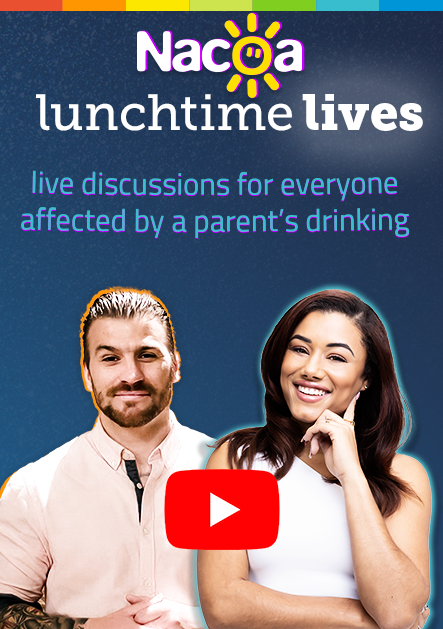

Researching COAs | ‘I saw fragments of myself in the findings’
When I first began my Extended Project Qualification for my A Level, I wasn’t quite sure what to do it on, other than a concept within psychology.
I only came across the idea of parental alcoholism from looking at psychological experiences of my own. Even then, I didn’t know that parental alcoholism was something others go through and think it is important to talk about.
However, through my research, I realised that this experience has had far deeper impacts on my thoughts and behaviour than I cared to admit before. This fuelled my interest in the effects of trauma on the young brain more than anything.
Looking through the research literature, I saw fragments of myself in the findings. My project collected these pieces and dug deeper within the human mind to see why parental alcoholism can affect someone so much.
I wanted to help us all understand ourselves
I hoped more than anything that my research could have a real impact on others like me. I wanted to help us understand ourselves, why we act the way we do. The small yet salient characteristics which differentiated us from others.
I never would have thought that I would explore this experience of my own in any detail at all. It was to me something I blurred out of my memory, where only small, sharp snippets remained. Yet despite this, behavioural effects continued, and I found myself stressing out over the smallest things. I was constantly being on edge in any situation where my parent would have a chance to drink. This, in a way, laid the foundation for my research aims.
The most important thing I wanted to reflect on was the hidden effects of parental alcoholism on children. I didn’t just want to find out what kind of characteristics can be developed, but why and how.
I only discovered Nacoa during my research, somewhat far in (apparently I’d never actually searched ‘children of alcoholics’). The information I found made me realise that this is something that thousands of others have experienced, as well as the amount of research that has been done on COAs specifically.
I contacted Nacoa to see if they could help
I contacted Nacoa to see if they could help me find participants for my research. Through their support, I was able to bring the well-known ambassador, Josh Connolly, to my school to give a talk on his own experiences and raising awareness for others who, like me, believed they were alone in their situation. What he told me was profound, and I used it throughout my essay to inform my findings.
To reflect the variety of situations COAs can find themselves in (as I saw clearly in Nacoa’s Young People’s Panel during COAWeek 2022), I wanted to show this in the often dissimilar characteristics of COAs. Notably, the need for control is a common feature of COAs. How this affects our actions, however, can contrast profoundly. I discovered the illusion of control, and successfully linked this to the sense of control felt over a parent’s drinking: in other words self-blame.
Similarly, attributing yourself as responsible for the solution to the drinking gives you more control. Contrastingly, I also explored the concept of learned helplessness. This is when one experiences such a lack of control over outcomes that they relinquish their sense of agency and don’t act to change their situation. Through learned experience, then, they don’t believe action will change anything.
What defines codependency is an unhealthy attachment between two people,
Keira
Parentification and codependency
I also explored the link between parentification and codependency. Through caring for a parent’s physical and/or emotional needs, this can develop a sense of purpose which relies on someone else needing you to exist. What defines codependency is an unhealthy attachment between two people. This is where there is a need to focus on another, doing things which help solve their problems and make them happy, rather than focusing on your own. Codependency has been linked to a strong desire for the approval of others and a sensitivity to other’s pains. This can then lead to a tendency of self-blame.
The constant feeling of unpredictability and uncertainty of a parent’s behaviour can lead to different ways of trying to alleviate the stress resulting from it. This can then lead to certain patterns of thoughts and behaviours which can manifest into maladaptive (not adjusting adequately or appropriately) coping strategies and mental health issues.
Hypervigilance, alexithymia, and hyper-responsibility
Our mind does many things to protect us in the best way it can at a certain point in time. In my essay, I made the final argument that coping mechanisms our brain created to protect us, such as adapting, withdrawing, or attempting to control the situation, all can generalise to later future behaviours, and therefore become maladaptive.
This can lead to hypervigilance around familiar situations (involving a past experience of a parent drinking), alexithymia (trouble identifying emotions, due to the inconsistent emotional image of a parent, or perhaps focusing on other peoples’ feelings instead of your own), hyper responsibility over controlling outcomes or someone’s well-being, and many more.
- Hypervigilance – elevated state of constantly assessing threats
- Alexithymia – trouble identifying emotions due to the inconsistent emotional image of a parent
- Hyper-responsibility – feeling the need to control outcomes or someone’s well-being
Finding this information was honestly exhilarating; it is a deeply psychological explanation for the often hidden, even from ourselves, effects of parental alcoholism. For the first time, I am willing to acknowledge how much my past has affected me, know that I am equipped with knowledge that can allow me to recognise my own irrational biases, to overcome them productively. I hope that other COAs can do the same through understanding the link between their childhood and present self.
We are all aware that there is a certain attitude towards alcohol in society, which can encourage its consumption, while shifting aside the more negative aspects with weak cautions and even humour.
Keira
It has helped me understand myself much better
I believe one of the most important aspects of Nacoa is its determination to raise awareness of this hidden societal problem. We are all aware that there is a certain attitude towards alcohol in society, which can encourage its consumption, while shifting aside the more negative aspects with weak cautions and even humour.
This can impact how willing people may be to speak of their experience with a family member’s addiction, and it can become hard to cope with attitudes towards drinking which trigger one’s own insecurities over whether their problem is anything at all. In order for COAs to get support, there must first be an understanding and acknowledgement of how your experience has affected you.
But for this to come to fruition, there must be awareness in society as a whole about the hidden effects of alcohol, for any sort of acknowledgement from it to lead to real change in how alcohol and alcoholism is portrayed.
Keira
Keira’s exceptional essay went on to win the prize for EPQ on Presidents’ Day at LVS Ascot School.
























































































